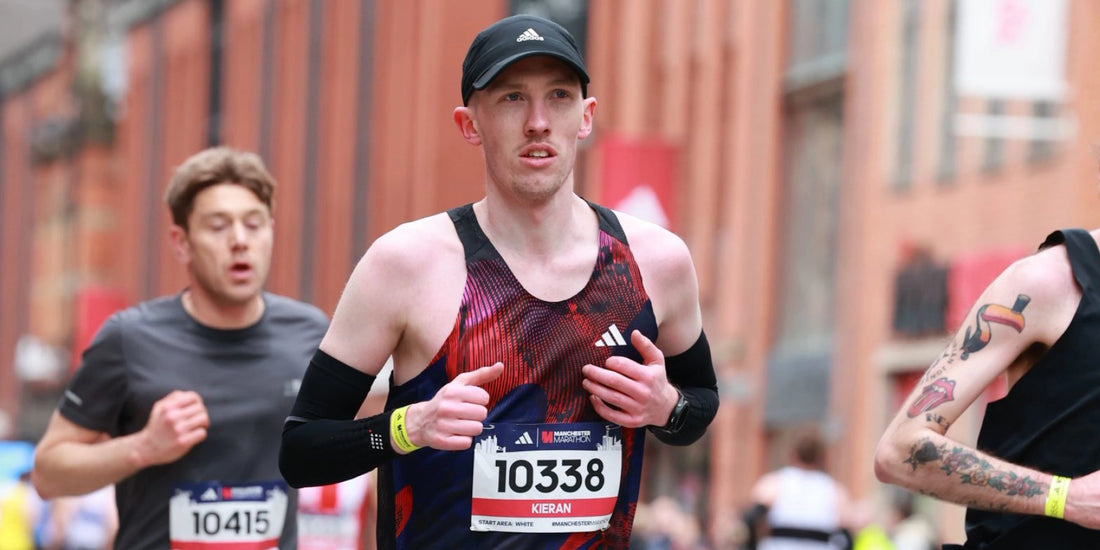A half marathon can be a rewarding challenge no matter if you’re running for a charitable cause or if you’re just hoping to race, but it is important not to underestimate this distance. In order to complete a half marathon, you’ll need to commit to a weekly training plan to ensure that you’re prepared.
No matter if you’re a complete beginner, or an intermediate runner who is looking to step into long-distance races for the first time, anyone can achieve their goals as long as they have a solid training plan. In this guide, we’ll offer some of our most useful tips for training, alongside 12-week training plans and running shoe recommendations to make sure that you have everything you need to get started.
How long is a half marathon?
A half marathon is 13.1 miles or 21km. Despite being only half of a full marathon, this is a substantial length and it takes time and commitment in your training to be able to run this distance. On average, recreational runners can complete a half marathon in about two hours but beginners may take longer than this to account for breaks and a slower pace.
How long should you train for a half marathon?
For the majority of runners, starting training three months before the event will be sufficient. However, this can change depending on ability level as complete beginners may need an extra few weeks to ensure that they are ready for the event and experienced runners may be able to train in just eight weeks. If you are unsure of how long you’ll need to train for your half marathon, we recommend starting three months prior and adjusting your plan accordingly if necessary.
How to create a half marathon training plan
A solid training plan is your key to successfully running a half marathon. To create one that suits your needs you’ll first have to decide what your goals are and what your current running ability is so that you can make adjustments to your plan. To help you create a basic plan that is realistic for your goals, we’ve listed a beginner’s half marathon training plan and an intermediate one below. The beginner plan will follow a structure that will focus on completing the run and preparing you to run this distance, however, the intermediate plan is more focused on improving your time.
With each of these plans, we’d also suggest incorporating some strength training into your regime once or twice a week to improve your overall performance and ensure your muscles are able to withstand the intensity of your training. If this seems like it will be difficult for you to manage by yourself, you could attend a group strength training session, pilates or yoga class, or follow a simple home workout if you are short on time.
A half marathon training plan for beginners
For those who are new to distance running or new to running completely, this 12-week plan will help you to prepare for your half-marathon at a pace that suits you, without overworking your body. You must rest for at least one day between each run to avoid muscle fatigue and injury, however, you can use your rest days to cross-train. Ensure that you have at least one day a week of complete rest.
To help you create a suitable training plan, an easy run should be completed at a relaxed conversational pace, meaning that it is low effort and intensity. A long run will also typically be run at a slower pace so that your body does not become fatigued, this is because you are focusing on distance. A long run should account for up to 30% of your weekly mileage. Finally, an interval run means that you’ll be working at different paces, this will include alternating between jogging, running, and walking for different periods. For example, walking for two minutes but running at a faster pace for eight.
- Week 1: 2 easy runs of 30 minutes and 1 long run of 3 miles.
- Week 2: 2 easy runs of 30 minutes and 1 long run of 4 miles.
- Week 3: 1 easy run of 2 miles, 1 easy run of 4 miles, and 1 long run of 5 miles.
- Week 4: 1 easy run of 2 miles, 1 easy run of 5 miles, and 1 long run of 6 miles.
- Week 5: 1 easy run of 3 miles, 1 interval run of 6 miles, and 1 long run of 6 miles.
- Week 6: 1 easy run of 3 miles, 1 interval run of 6 miles, and 1 long run of 7 miles.
- Week 7: 1 easy run of 4 miles, 1 interval run with hill training for 6 miles, and 1 long run of 6 miles.
- Week 8: 1 easy run of 2 miles, 1 interval run for 7 miles, and 1 long run of 8 miles.
- Week 9: 2 easy runs of 2 miles, 1 interval run of 7 miles with hill training, and 1 long run of 10 miles.
- Week 10: 2 easy runs of 3 miles, 1 interval run of 7 miles, and one long run of 10 miles.
- Week 11: 2 easy runs of 2 miles, 1 interval run with hill training for 7 miles, and 1 long run of 9 miles.
-
Week 12: 1 easy run of 2 miles, 1 interval run of 5 miles, and your half-marathon.
Intermediate half marathon training plan
This plan is designed for runners who have already completed a half marathon before and are looking to improve their time, and it is also suitable for experienced runners who have some practice with distance running but would like to compete in a race. Intermediates should be capable of completing tempo runs, which are a continuous run that sustains a ‘comfortably hard’ pace. This means you’ll be pushing your body to run fast for your whole run, but not so fast that you become fatigued. Of course, as you progress in your training you can increase your speed or the duration of your tempo run to suit you accordingly.
- Week 1: 1 easy run of 30 minutes, 1 tempo run of 30 minutes, 1 interval run of 30 minutes, and 1 long run of 3 miles.
- Week 2: 1 easy run of 30 minutes, 1 tempo run of 30 minutes, 1 interval run of 30 minutes, and 1 long run of five miles.
- Week 3: 1 easy run of 40 minutes, 1 tempo run of 30 minutes, 1 interval run of 30 minutes, and 1 long run of six miles.
- Week 4: 1 easy run of 40 minutes, 1 tempo run of 35 minutes, 1 interval run of 30 minutes, and 1 long run of six miles.
- Week 5: 1 easy run of 45 minutes, 1 tempo run of 30 minutes, 1 interval run of 35 minutes, and 1 long run of eight miles.
- Week 6: 1 easy run of 45 minutes, 1 tempo run of 30 minutes, 1 interval run of 40 minutes, and 1 long run of eight miles.
- Week 7: 1 easy run of 50 minutes, 1 interval run of 35 minutes, 1 tempo run of 35 minutes and 1 long run of six miles.
- Week 8: 1 easy run of 50 minutes, 1 interval run and 1 tempo run of 40 minutes, and 1 long run of ten miles.
- Week 9: 1 easy run of 50 minutes, 1 interval run of 40 minutes, 1 tempo run of 30 minutes and 1 long run of 12 miles.
- Week 10: 1 easy run of 60 minutes, 1 interval run of 40 minutes, 1 tempo run of 30 minutes and 1 long run of 12 miles.
- Week 11: 1 easy run of 50 minutes, 1 interval run of 30 minutes, 1 tempo run of 30 minutes and 1 long run of six miles.
- Week 12: 2 easy runs of 40 minutes, 1 tempo run of 30 minutes and your half-marathon.
What shoes should you wear to train?
In the months leading up to your half marathon, we would suggest opting for a different shoe for everyday training. Rotating your running shoes can help to reduce general wear and tear, helping you to perform your best on race day, but it can also help to reduce the risk of injury by 39%. Of course, you will have to complement shoe rotation with a balanced diet and plenty of rest days to further lower the risk of injury, but we will cover this in our training plan section. If you plan to train up to three times a week, you can alternate between your training and race-day shoes to ensure that each provides a comfortable fit and the support that you need.
For a suitable training shoe, try the Adidas Adizero Boston 12. It features a forefoot spike plate and ‘ENERGYRODS’ - a unified system of tuned stiffness that will give runners a boost to improve stamina and performance. It also boasts a lightweight mesh upper for increased comfort and ventilation.
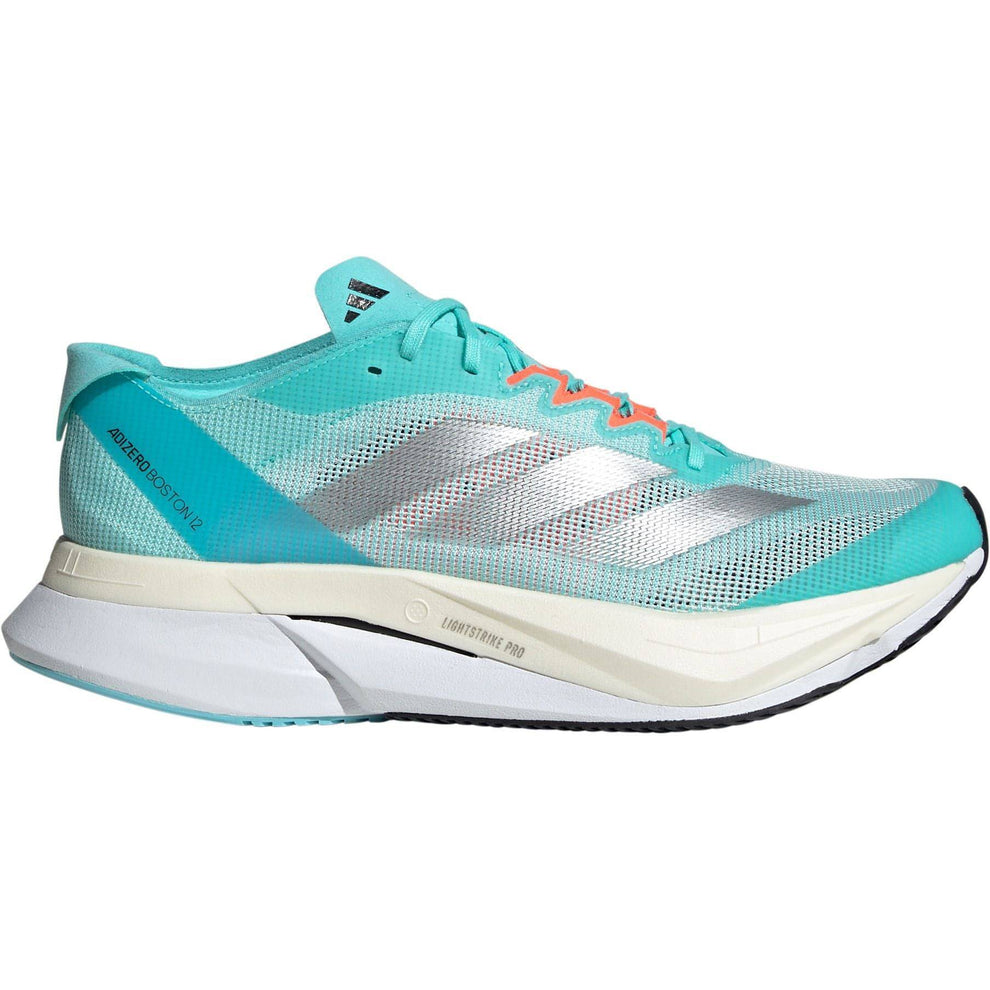 |
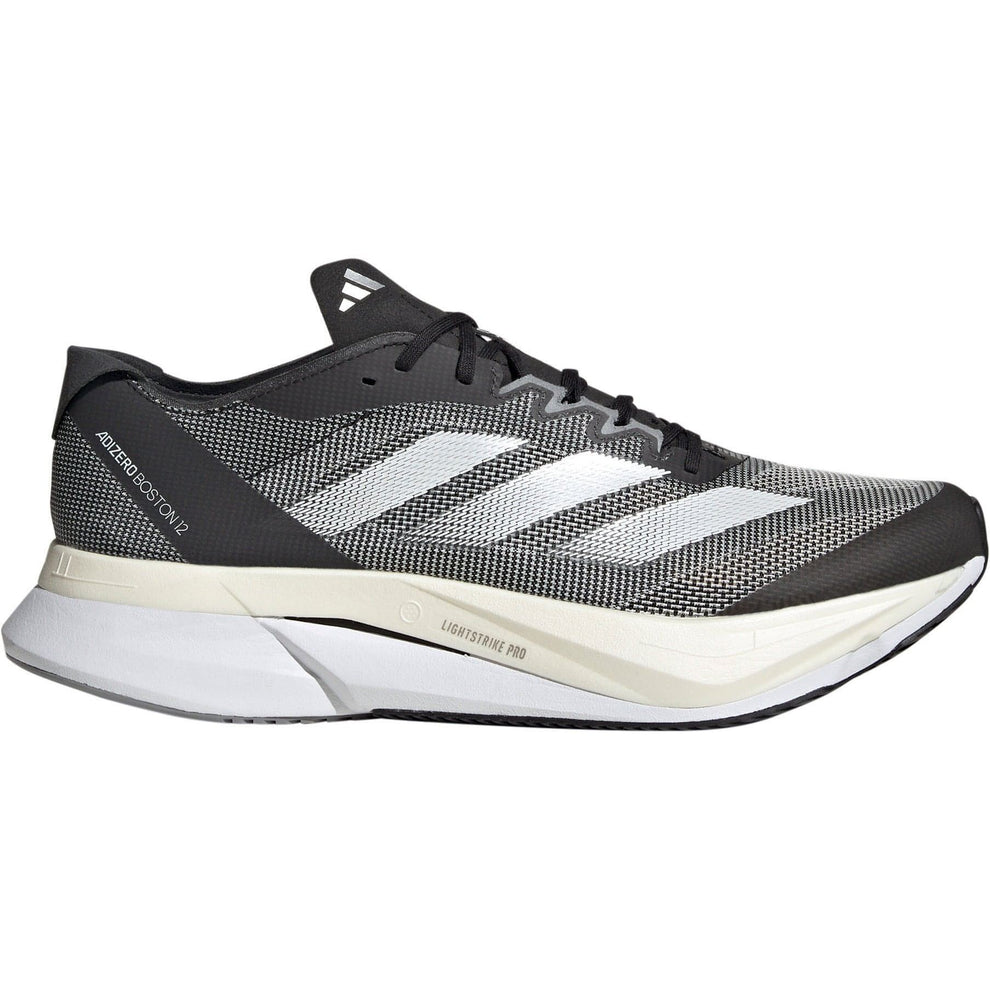 |
| Adizero Boston 12 Women’s Running Shoes | Adizero Boston 12 Mens Running Shoes |
What shoes are best for running a half marathon?
For the day of your half marathon, you’ll need to pick a pair of shoes that can support this distance, offering a comfortable fit and protection against repeated impact whilst working to improve your performance. The Saucony Endorphin Pro 4 ticks all of these boxes, featuring a carbon plate that helps to efficiently send energy back to the runner instead of it being lost, it also uses ‘SPEEDROLL’ technology to bring an element of effortless speed and forward motion to improve your overall pace.
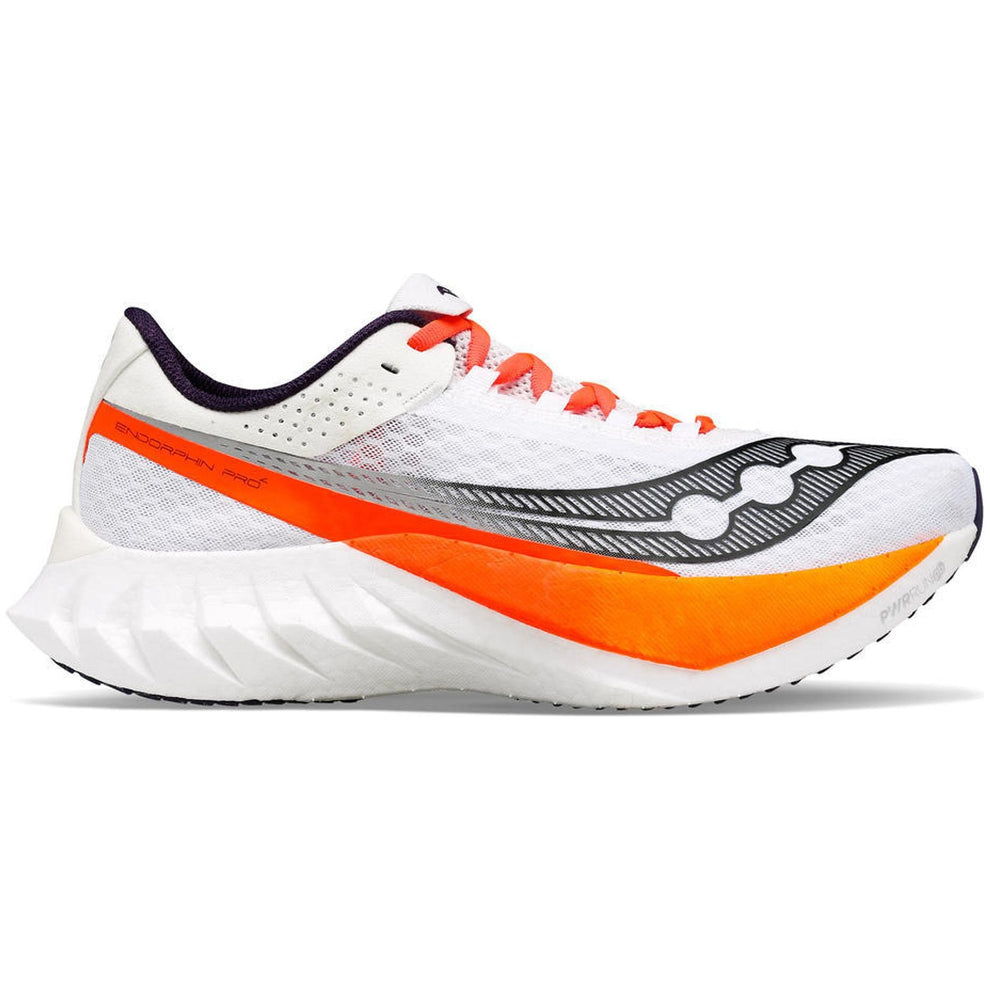 |
 |
| Endorphin Pro 4 Men’s Running Shoes | Endorphin Pro 4 Women’s Running Shoes |
If your main goal is distance over time, you may benefit from a different type of running shoe such as the Puma Velocity Nitro 3. This is a running shoe that provides more comfort and stability, so is well suited to beginners. The NITRO™ technology offers lightweight cushioning and responsiveness, alongside a heel spoiler which enhances stability for a more confident stride.
 |
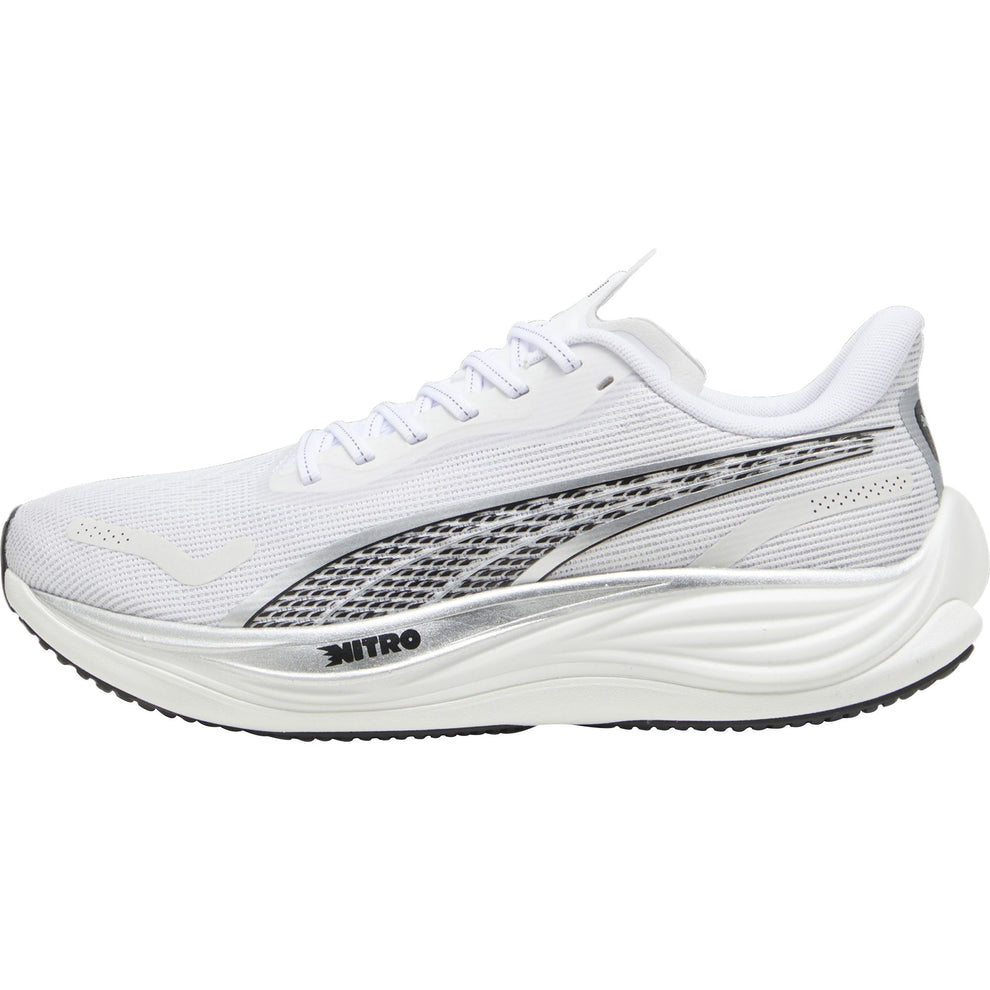 |
| Velocity Nitro 3 Women’s Running Shoes | Velocity Nitro 3 Men’s Running Shoes |
The right running shoes for you will also depend on your gait, so bear this in mind when selecting. We also recommend wearing the shoes during training several times to break them in before your race. For further information, read our Running Shoes Buyer’s Guide.
The basics of training for a half marathon
Whether you choose to stick to these plans or adapt them to suit your requirements, you’ll need to make sure that you’re familiar with the basics of training. For example, you’ll need to make sure that you warm up and cool down appropriately before and after each training exercise, including your additional cross-training days. Stretching will be essential to reduce the risk of injury, and should not be missed out when doing your warm-ups.
Additionally, you’ll need to know your limits and not push your body past its boundaries before it’s ready. If you push yourself too hard during training this can result in strain or injury that will affect your performance on race day. You should make sure that you are staying well hydrated and eating a balanced diet to provide your body with the energy it needs to perform efficiently. If you feel that you are getting dehydrated and need an extra boost on your runs, you can opt for a supplement such as the SiS GO Isotonic Energy Gels or the SiS GO Electrolyte drink powder, each of which promotes optimal hydration.
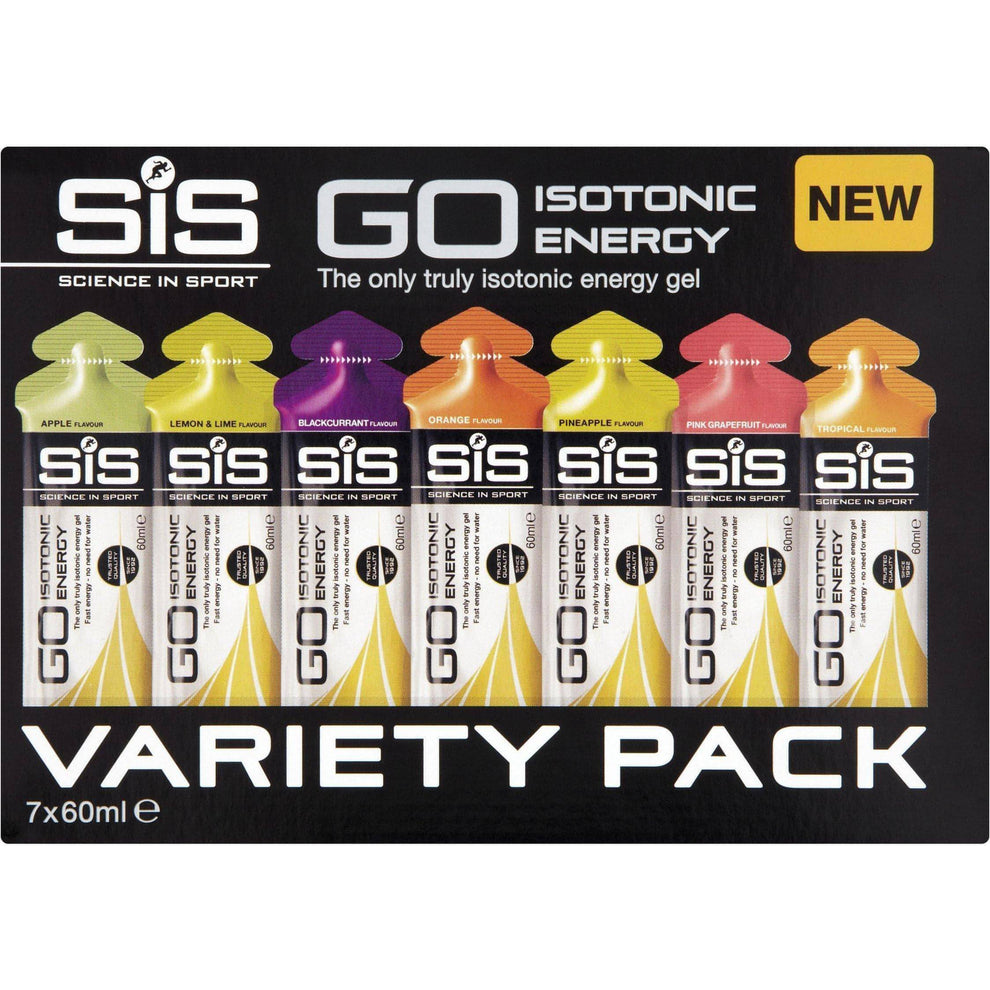 |
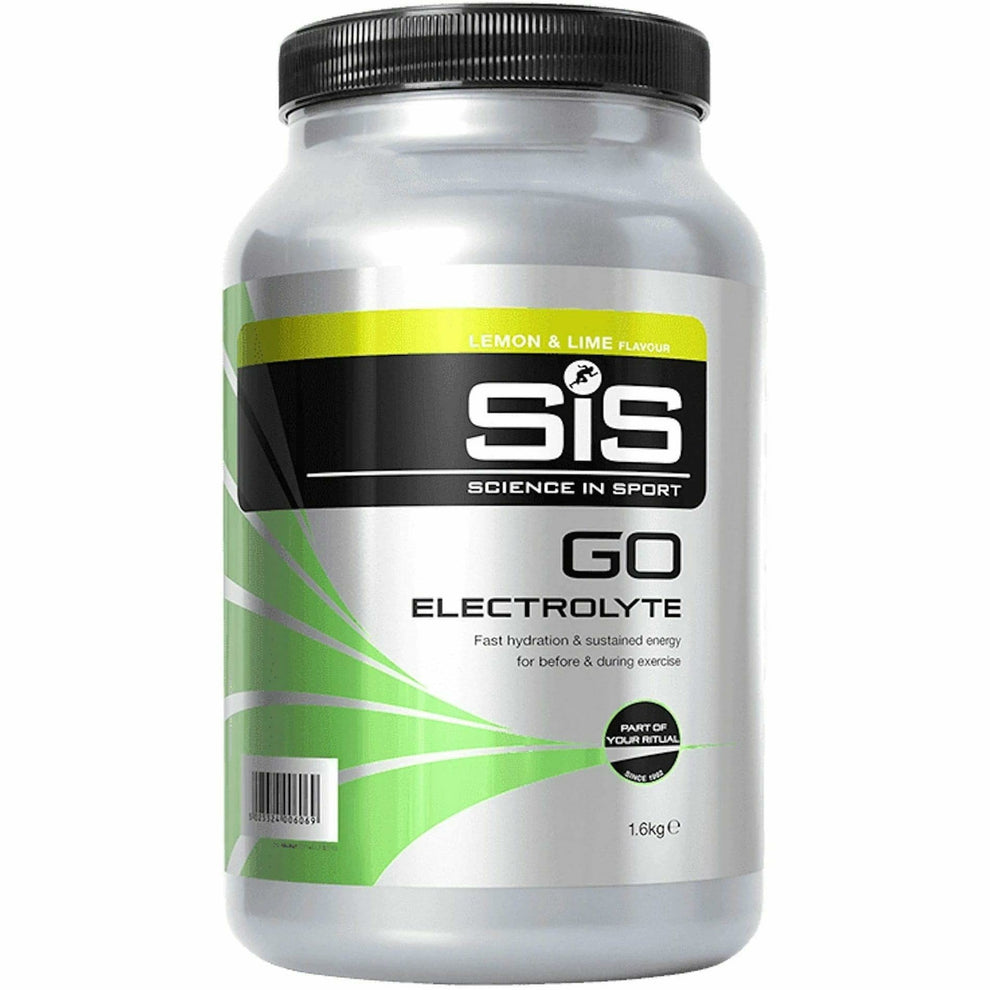 |
| SiS GO Isotonic Energy Gels | SiS GO Electrolyte drink powder |
Prepare for your half-marathon with Start Fitness
Last but not least, one of the most important things you can do when training is invest in the right running gear. Old and worn-out trainers will only result in blisters and slower running times, whereas the wrong clothing will leave you feeling uncomfortable and less confident in your ability. At Start Fitness, we understand the importance of choosing quality running shoes alongside breathable and comfortable clothing that doesn’t restrict your movement. We offer a wide selection of suitable running clothes from leading athletic brands, alongside several running accessories to optimise your training such as calf and arm sleeves and headwear.





